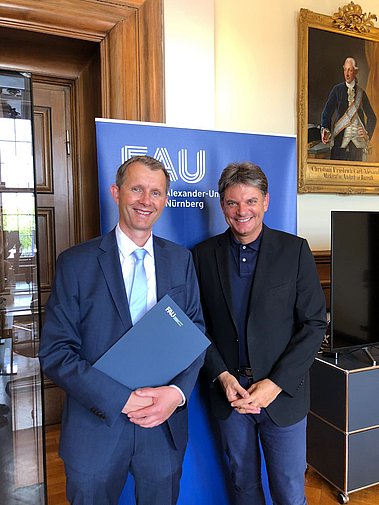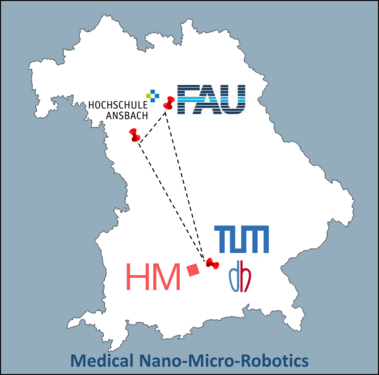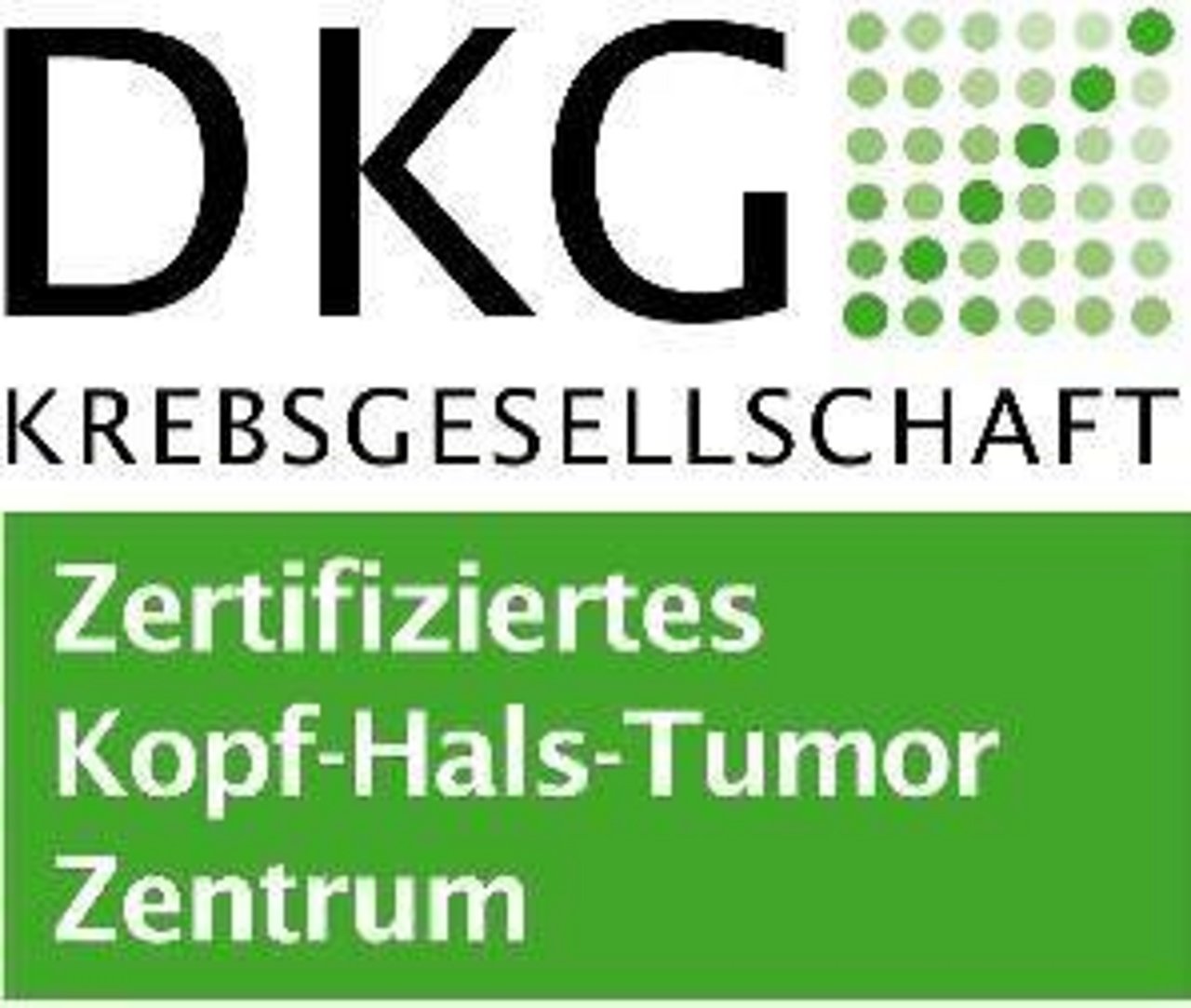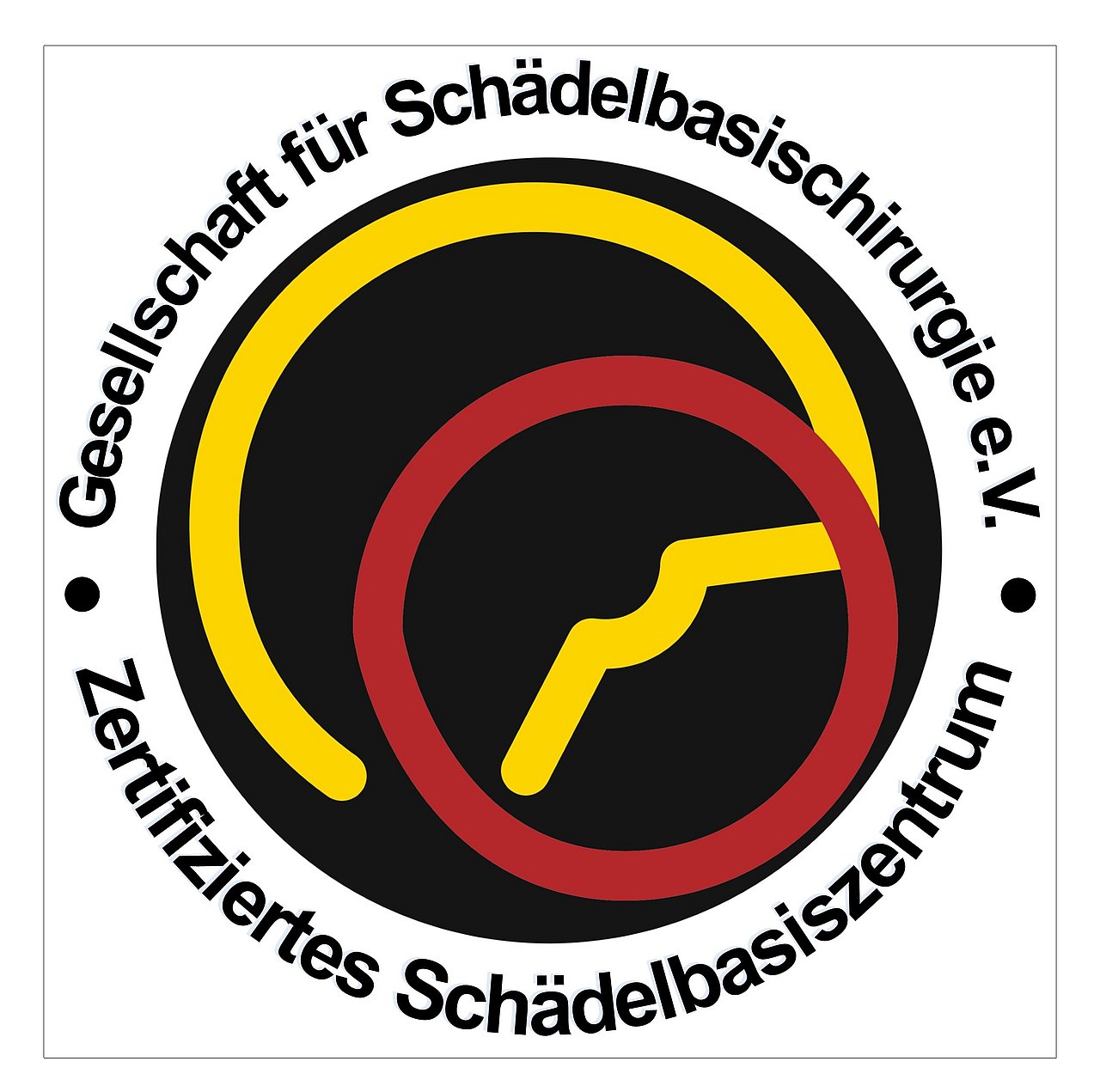As of 07/01/2022, Prof. Dr. rer. nat. Dr. habil. med. Stefan Lyer has been appointed to the W2 professorship for AI-controlled nanomaterials at the Friedrich-Alexander University Erlangen-Nuremberg within the framework of the High-Tech Agenda Bavaria.
This professorship is integrated into the complementary and interdisciplinary network Medical Nano-Micro-Robotics and aims to help shape the "medicine of tomorrow" using artificial intelligence (AI).
Who is part of the Medical Nano-Micro-Robotics network?
- Faculty of Medicine at FAU
- Ansbach University of Applied Sciences
- Technische Universität München (TUM) / German Heart Center Munich (DHM)
- Munich University of Applied Sciences
The vision: A precise, effective treatment of patients with as few side effects as possible
Beyond fundamental effectiveness and biocompatibility, new nanomaterials for AI integration are to be developed in the Medical Nano-Micro-Robotics network in order to realize new diagnostic and therapeutic concepts for diverse clinical demands in a fully digitized application environment. This means, for example, nanoparticles will be intelligently networked in a way that after application, they independently recognize diseased areas of the body and release active substances accordingly, or their signals facilitate diagnoses after specific enrichment for the surrounding networked sensor system. As a tangible milestone, the vascular architecture of a tumor or the position of an arteriosclerotic plaque will be digitally recorded angiographically or by MRI. These data are to be transmitted via intelligent algorithms to a robot which will position a magnetic field statically or dynamically so nanoparticles can accumulate in the target region optimally. In addition, intelligent cell navigation systems are being developed allowing for efficient and targeted homing of applicable cell populations for oncological or regenerative therapy in cardiovascular diseases.








